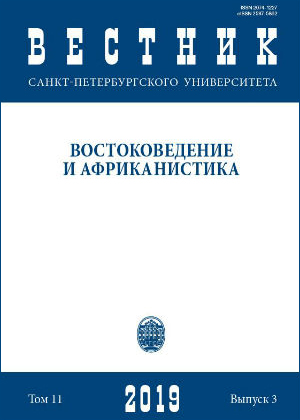Biblical phraseological units in Russian and Hindi: Peculiarities of translation
DOI:
https://doi.org/10.21638/spbu13.2019.303Abstract
The article studies the biblical phraseological units, which are used in the modern Russian language, and the peculiarities of their translation into the Hindi language. The author analyzes the ways of translating phraseological units in general and phraseological units of biblical origin in particular. The article explores several methods of translation: phraseological translation and non-phraseological translation. The first method includes the following techniques of translation: 1) phraseological equivalent; 2) phraseological analogue. The second method includes: 1) lexical translation; 2) calquing; 3) descriptive translation. The author analyzes examples of translation of phraseological units using various translation techniques. Statistics of different methods and techniques of translation of biblical phraseological units from Russian into Hindi is also presented in the article. The author discusses difficulties in the process of translating phraseological units from one language to another and some of the common difficulties in translation of biblical phraseological units are false friends of the translator, ambiguity of phraseological units, obsolete words, the problem of choosing the appropriate equivalent, etc. The author opines that in order to successfully and adequately translate biblical phraseological units from Russian into any other language, a translator and a teacher of Russian literature or Russian as a foreign language has to be acquainted with biblical literature, biblical legends and the translator must have knowledge of stylistics and phraseology of source language as well as of target language. The practical significance of the work lies in the fact that this research material can be used in teaching modern Russian language and literature in the Indian classrooms where Russian is taught as foreign language. The corresponding translation of biblical phraseological units of Russian into Hindi will help Indian students to understand the meaning of biblical phrases easily and adequately.
Keywords:
phraseological unit, phraseology, biblical phraseological unit (biblical phrases), teaching of the Russian language, Russian language, Hindi, translation, techniques and methods of translation, phraseological equivalent, phraseological analogue, lexical translation, calquing, descriptive translation, semantics, connotation, emotional and expressive evaluation.
Downloads
References
Downloads
Published
How to Cite
Issue
Section
License
Articles of "Vestnik of Saint Petersburg University. Asian and African Studies" are open access distributed under the terms of the License Agreement with Saint Petersburg State University, which permits to the authors unrestricted distribution and self-archiving free of charge.





